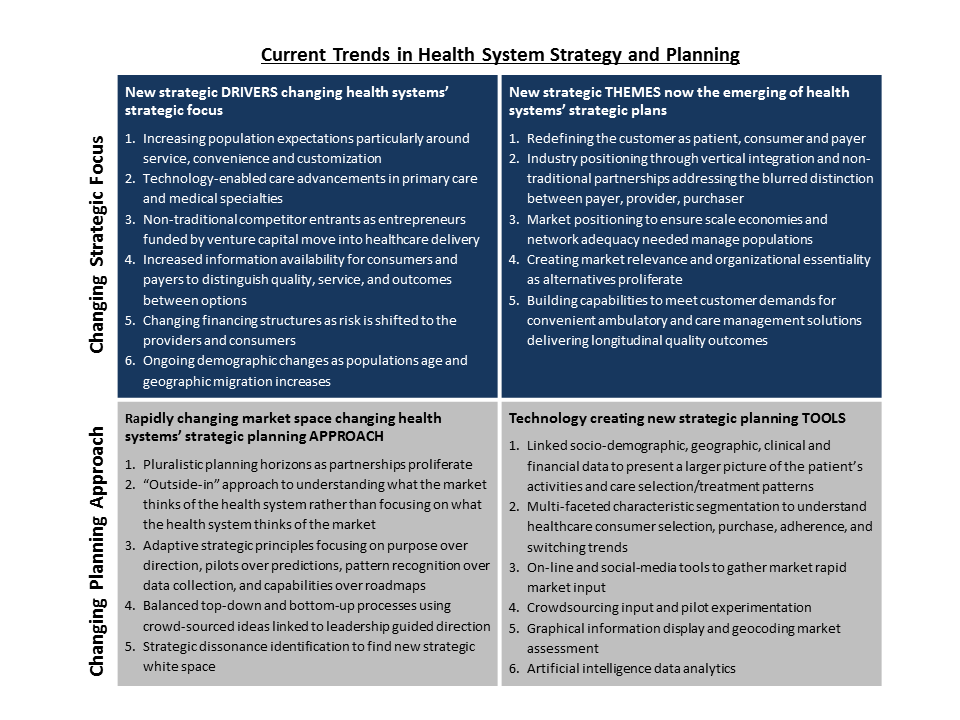Health System strategic planning requires a new approach for today's healthcare environment. The rapid, industry-wide changes brought on by demographic, regulatory, entrepreneurs, technology, and changing population expectations are upsetting the age-old rules.
The role of health system, purchaser, insurer, provider, and customer are all changing and the clean distinctions of yesterday are blurred today. Health systems clinging to the traditional models of success are experiencing increasing challenge while others and new entrants adapt to the new industry rules and gain market position. As a result, health systems' strategic focus and planning approaches must also change.
Driving the strategy changes are a confluence of patient service, convenience and delivery model demands and entrepreneur and other non-traditional competitor entrant to the provider industry. Increased pricing pressures and reimbursement shifts towards longitudinal quality metrics are accelerating the dissonance between the old and new rules for success leaving some caught in the middle.
However, successful health systems are changing their strategic focus to reclaim the health systems' industry position and customers. While maintaining geographic position and market share efforts, the most advanced health systems are focusing creating new capabilities, forming non-traditional partnerships and shifting delivery models towards access and convenience to drive their success in the new environment.
The approach and tools used to craft successful health system strategic plans are also changing. Current planning processes make use of the rapidly changing industry dynamics and the increased data availability. New approaches emphasize the external view and embrace partnerships from outside the industry. Moreover, with increasing levels of data available, predictive and graphical viewing tools are being used to collect and view big data. The availability big data sets are allowing more accurate scenario boundary formation and outcome probabilities thereby allowing pilots to move ahead where historically more projection accuracy was needed.
Health system strategy and planning process are changing. The "5-year plan" with detailed strategies and tactics is less relevant today than an agile planning approach focused on the emerging success metrics and themes. Successful health systems will adapt to the changes and use their leadership positions to appropriately guide the industry transformation.

The views, opinions and positions expressed within these guest posts are those of the author alone and do not represent those of Becker's Hospital Review/Becker's Healthcare. The accuracy, completeness and validity of any statements made within this article are not guaranteed. We accept no liability for any errors, omissions or representations. The copyright of this content belongs to the author and any liability with regards to infringement of intellectual property rights remains with them.


